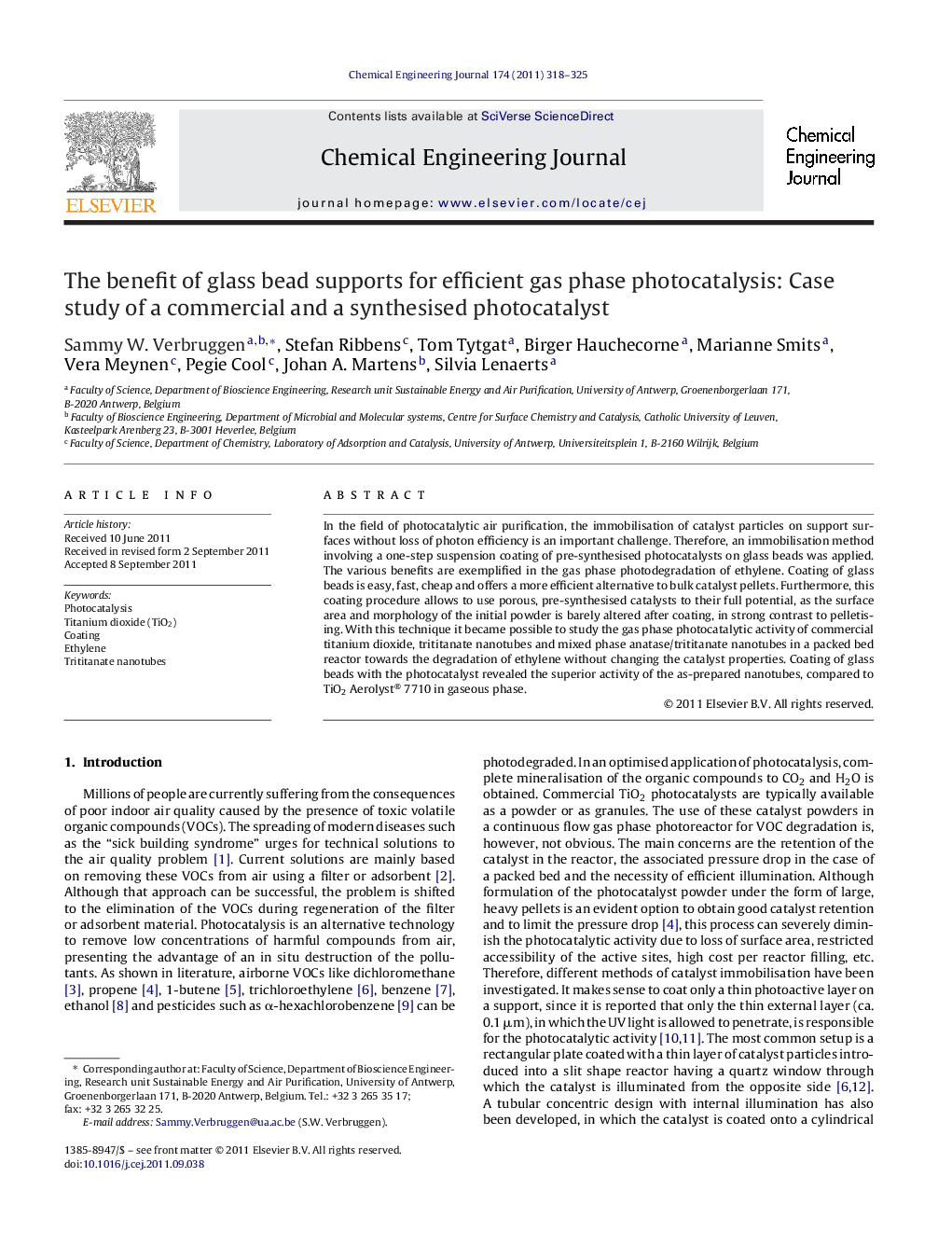| کد مقاله | کد نشریه | سال انتشار | مقاله انگلیسی | نسخه تمام متن |
|---|---|---|---|---|
| 150538 | 456451 | 2011 | 8 صفحه PDF | دانلود رایگان |

In the field of photocatalytic air purification, the immobilisation of catalyst particles on support surfaces without loss of photon efficiency is an important challenge. Therefore, an immobilisation method involving a one-step suspension coating of pre-synthesised photocatalysts on glass beads was applied. The various benefits are exemplified in the gas phase photodegradation of ethylene. Coating of glass beads is easy, fast, cheap and offers a more efficient alternative to bulk catalyst pellets. Furthermore, this coating procedure allows to use porous, pre-synthesised catalysts to their full potential, as the surface area and morphology of the initial powder is barely altered after coating, in strong contrast to pelletising. With this technique it became possible to study the gas phase photocatalytic activity of commercial titanium dioxide, trititanate nanotubes and mixed phase anatase/trititanate nanotubes in a packed bed reactor towards the degradation of ethylene without changing the catalyst properties. Coating of glass beads with the photocatalyst revealed the superior activity of the as-prepared nanotubes, compared to TiO2 Aerolyst® 7710 in gaseous phase.
► Commercial and synthesised photocatalysts easily immobilised on glass beads for gas phase photocatalysis.
► Better use of UV light thanks to large exposed catalyst surface and reflection between beads.
► Factor 25 reduction of amount of catalyst needed compared to TiO2 pellets.
► VOC (ethylene) degradation close to 100% with less than 1 wt% TiO2 in reactor.
► Trititanate nanotubes more efficient than commercial TiO2 in photocatalytic degradation of ethylene
Journal: Chemical Engineering Journal - Volume 174, Issue 1, 15 October 2011, Pages 318–325